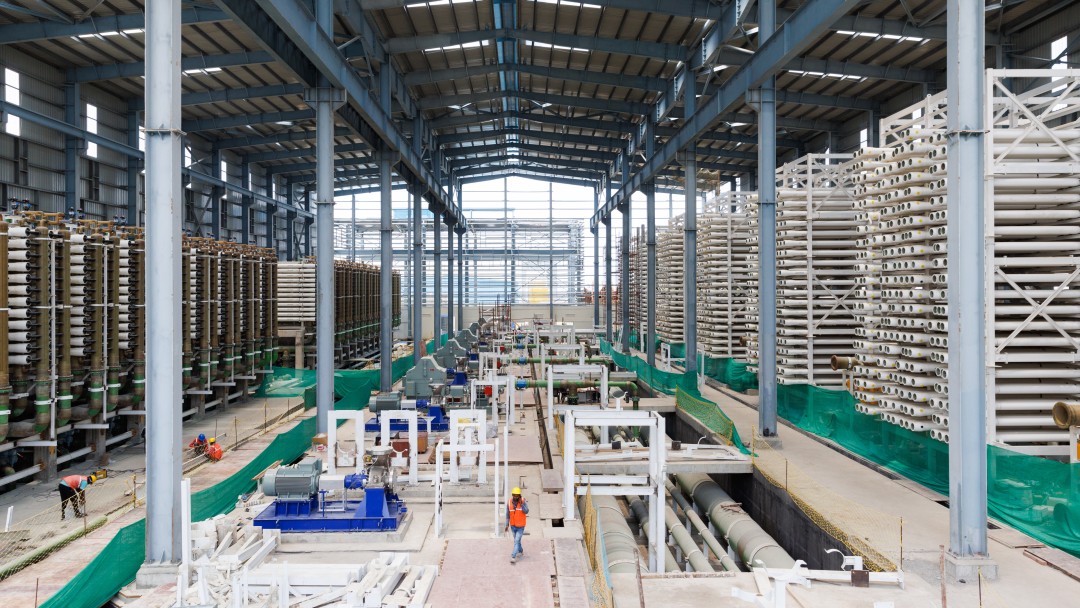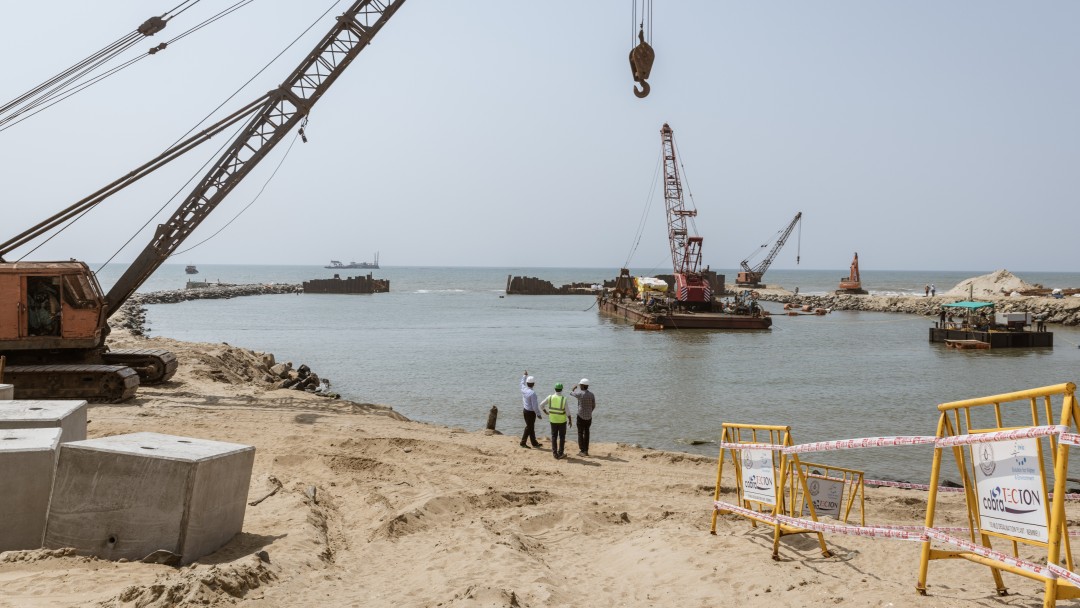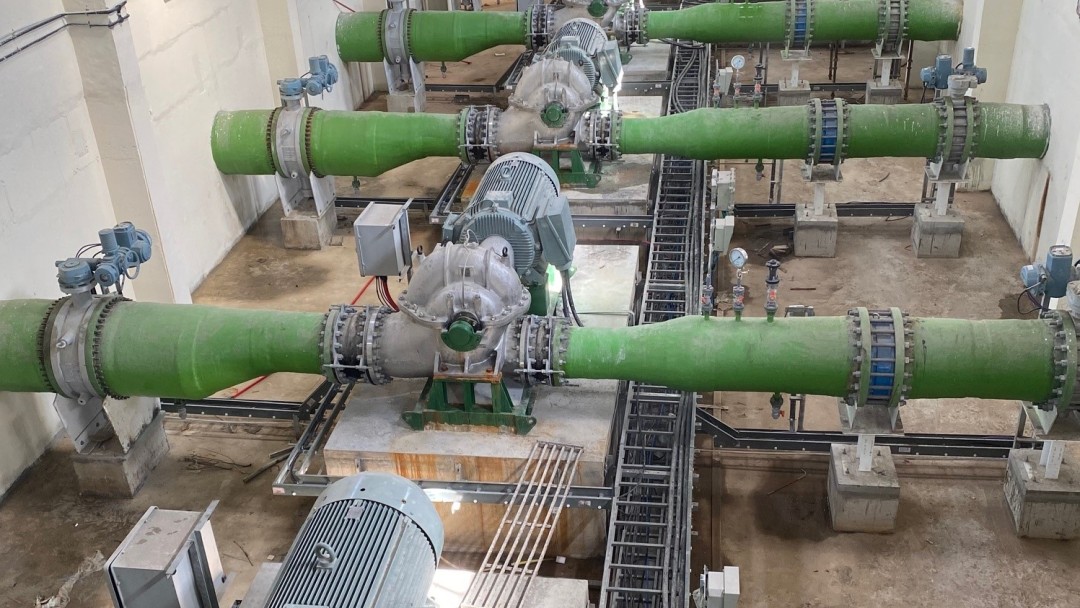
The city of Chennai in Tamil Nadu, India, is growing rapidly. As a result, the city's water reserves are quickly running out. A missed monsoon and years of drought have already led to a crisis in which water had to be brought in by tanker trucks from distant regions. On behalf of the German Federal Government, KfW has now co-financed the construction of a seawater desalination plant that supplies up to one million people with drinking water
The city of Chennai in India’s Tamil Nadu has over one million inhabitants, and is growing quickly. In 2019, the city literally dried up: there were no more drops to come out of the taps. The rain-giving monsoon had not come. After four years of drought, the city’s four water service reservoirs had been emptied. The ground water table had also dropped due to overuse. The water shortage led to hotels and restaurants being forced to close. The crisis also led to social division. Well-off families bought water, which was delivered by thousands of tank trucks from other, far-flung regions. The poorer people couldn't afford that.
The water reservoirs could dry out again at any time. Climate change has also caused less rain to fall during the annual monsoon, or for it to fall later or even not at all. At the same time, Chennai continues to grow. The population is growing at a rate of 8% each year. There are already an estimated 12 million people living in the metropolis.
In order to provide enough drinking water for the people of Chennai, the government of the state of Tamil Nadu made the decision to build a seawater desalination plant. On behalf of the Federal Ministry for Economic Cooperation and Development (BMZ), KfW contributed EUR 100 million of the EUR 170 million estimated to be needed for construction in the form of a long-term loan. The remainder was borne by the state of Tamil Nadu. KfW is providing a loan with a term of 20 years in line with the plant's amortisation phase. Such terms are not offered anywhere else on the market.

Seawater desalination has been used worldwide for a long time to meet the demand for drinking water when there is no other, more cost-effective option. Although seawater is certainly in no short supply, desalination is energy-intensive and therefore expensive. However, technical progress has halved energy requirements: reverse osmosis is a procedure in which seawater is forced through fine membranes that retain the salt. The Chennai plant financed by KfW uses a particularly energy-saving variant of this technique.
The new plant, which was built in the south of the city, has a capacity of 150 million litres per day. Therefore, out of the three plants that Chennai now has, this one is the largest. Another, even larger plant is already in the design phase. The plant, co-financed by KfW, supplies water for up to one million people. It was opened in spring 2024. Despite obstacles such as COVID, rough seas that hampered offshore building works and the limited space available, the construction was completed in a short time. The plant is now operated by the Chennai Metropolitan Water Supply and Sewerage Board (CMWSSB).

The expansion of drinking water production was not the only measure taken to counter the water crisis. The municipality also declared a fight against water waste and drew up a management plan. The rehabilitation of the mains network has already begun to minimise losses. Demand is set be consciously managed, including by installing water meters.
Since Chennai is located directly by the sea, the use of desalination technology was an obvious solution. At the same time, there is close to zero space in the metropolis itself. Therefore, there was no space to install a photovoltaic system for energy supply. The plant is operated with a conventional energy mix, as there is currently no alternative available to supply the city with the drinking water it desperately needs. At the same time, India – also with the support of KfW – is working to expand electricity generation from renewable energies. In view of these constraints and the particularly energy-saving technology, combined with the new water management plan, this is an innovative approach by the city of Chennai to tackle water shortages and contribute to the achievement of UN Development Goal 6 – safe drinking water supply.
Share page
To share the content of this page with your network, click on one of the icons below.
Note on data protection: When you share content, your personal data is transferred to the selected network.
Data protection
Alternatively, you can also copy the short link: https://www.kfw-entwicklungsbank.de/s/enzByhsz
Copy link Link copied